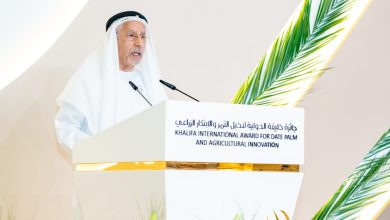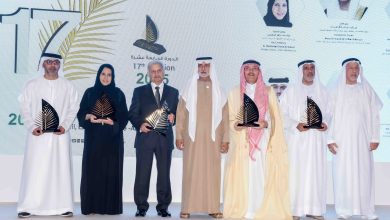International Consensus for a Sustainable Future for the Marine Environment and Better Management of Fisheries and Aquaculture
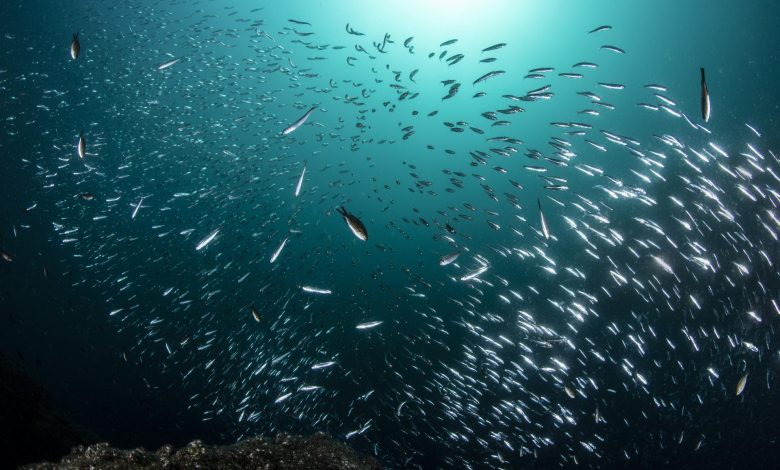
By Mohammed TAFRAOUTI
Countries unite for a sustainable future : moving towards better fisheries and aquaculture in the Mediterranean and Black Seas.
The Mediterranean Sea has been subjected to widespread overfishing. For years on end, fish stocks have been fished beyond the limits of biological sustainability. That is, three-quarters of the stocks are subject to overfishing. This threatens the marine ecosystem, as well as the livelihoods of many in the Mediterranean region. The international community concerned with the marine environment was encouraged by the practical efforts accomplished by the General Fisheries Commission for the Mediterranean, affiliated with the Food and Agriculture Organization of the United Nations (FAO), during the forty-sixth session of the Commission, which concluded its work on November 10, 2023, in the city of Split, Croatia.
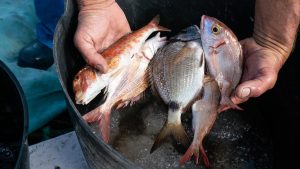
The Commission unanimously adopted 34 decisions and 24 binding recommendations to ensure the conservation and sustainable exploitation of living marine resources, as well as the sustainable development of aquaculture in the Mediterranean and the Black Sea, by 20 countries and the European Union. A number of proposals were adopted in accordance with strong and comprehensive scientific advice from the subsidiary bodies of the General Authority for Mediterranean Fisheries, to activate the effectiveness of the plans being implemented. This session is considered one of the most productive sessions in the history of the Authority, as various recommendations and decisions are proposed annually and then approved according to the agreement of the members of the General Authority for Mediterranean Fisheries on an action plan for the following years. Most of these decisions are aimed at sustainable development of the region’s vital fisheries and aquaculture sector in the long term.
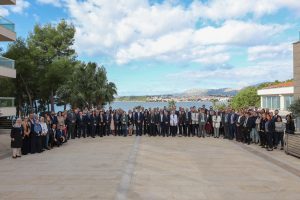
The volume of approved decisions and recommendations is considered the highest since the establishment of the Authority. Over the past decade, the General Authority for Mediterranean Fisheries has adopted multi-year programs to manage fish stocks according to a scientific vision, numbering approximately 10 plans. The proposals centered around improving fisheries management, addressing climate and environmental issues in the fisheries and aquaculture sector, enhancing compliance and the continuity of science-based management.
These plans seek to implement the sustainable exploitation of fish resources, combat overfishing, and ensure high and long-term productivity.
Good management of fisheries is crucial to maintaining the ecological balance of the oceans. Fish contribute to biodiversity and abundance of marine species. In addition, fisheries support the livelihoods of millions of people around the world. Marine life remains under threat by underwater pollution, plastic pollution, the consequences of climate change and overexploitation.
“Field data shows that the plans are making a real impact towards achieving sustainability goals,” said the Head of the European Union’s Mediterranean and Black Sea Fisheries Management Unit, Valerie Linyi.
“It is very encouraging to see the positive results of our joint efforts,” she added.
Executive Secretary of the General Fisheries Commission for the Mediterranean, Miguel Bernal, who celebrated his first year in office at the forty-sixth session, said that all members are proud that a record number of binding resolutions were approved. He added, “Developing plans to preserve shared marine resources and their sustainable exploitation depends on trust and cooperation between all parties involved. I am very pleased with the ambitious stance shown by our members at this year’s session, as they came together to achieve common goals and objectives. I also pay tribute to the foundation stones laid by the countries in our technical advisory bodies: it is their knowledge and experience that gives our members the opinion they need to make more and better decisions about our common future.”
The forum witnessed the proposal and discussion of a series of recommendations aimed at reducing the impacts of fisheries on the marine environment. A regional action plan has been agreed to protect threatened species including seabirds, cetaceans and sea turtles, eels (Electrophorus electricus) and sturgeons (Acipenseridae).
Participants discussed key topics regarding sensitive marine environments and agreed on a roadmap to establish a no-fisheries zone to protect the fragile coral in the Alboran Sea. The General Fisheries Authority for the Mediterranean launched a long-term initiative to decarbonize the fishing fleet in the region, in line with the international trend to reduce greenhouse gas emissions.
Also discussed were a series of proposals to decarbonize the aquaculture sector, such as promoting sustainable energy sources, carbon capture technologies and low-impact production methods, and then launching an adaptation plan to make the sector more resilient to climate change.
The participants also discussed the problem of compliance, that is, ways to implement the decisions of the General Fisheries Authority for the Mediterranean and enforce adherence. Member countries develop and regulate fisheries and aquaculture operations. They unanimously agreed to identify important milestones in many areas and adopt new tools to consolidate a culture of compliance. They announced two permanent plans for inspection and monitoring in international waters, and two plans for documentation of commercially important turbot (Scophthalmus maximus) fisheries in the Black Sea and red coral in the Mediterranean, which will contribute to increasing accountability and contributing to the fight against illegal, unreported and unregulated fishing. A new mechanism was established to enhance the culture of compliance in the region, through the adoption of an important decision that allows the Compliance Committee to better identify cases of non-response to pledges and their sources, with appropriate follow-up procedures to prevent and mitigate them. A strong political commitment regarding the establishment of a regional vessel monitoring and control system was recorded by the General Fisheries Authority for the Mediterranean at its next annual session.
Morocco, Albania, Turkey and the European Union were crowned winners of the General Fisheries Commission for the Mediterranean Compliance Awards for fully conforming all recommendations and decisions of the General Fisheries Commission for the Mediterranean to national legislation and making an annual declaration of all required data.
Note: The General Fisheries Commission for the Mediterranean is a regional organization specialized in fisheries management and has the authority to make binding recommendations for the development of fisheries and aquaculture in the Mediterranean and the Black Sea. Representatives of member states of the General Fisheries Commission for the Mediterranean, as well as experts and observers from 12 partner organizations such as the World Wide Fund for Nature (WWF), Global Fishing Watch, Oceana International, Mediterranean Advisory Council (MEDAC) and OceanCare participated in the session.


